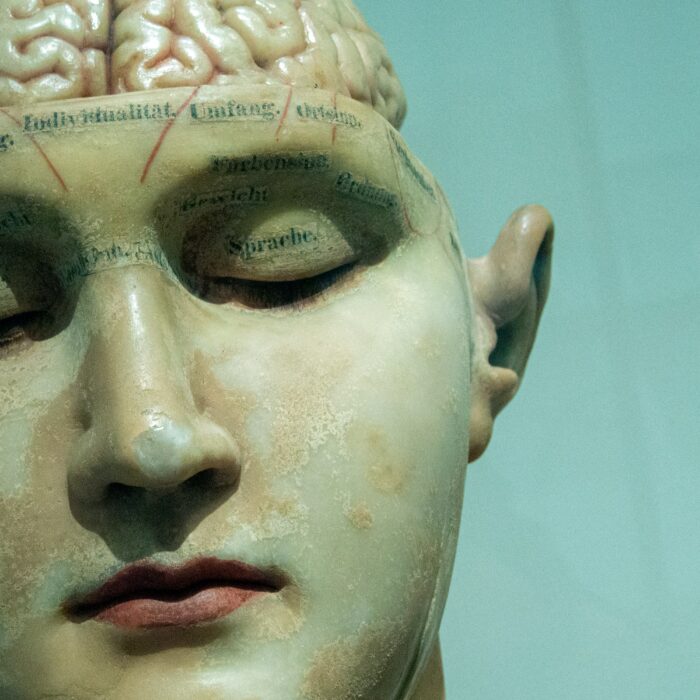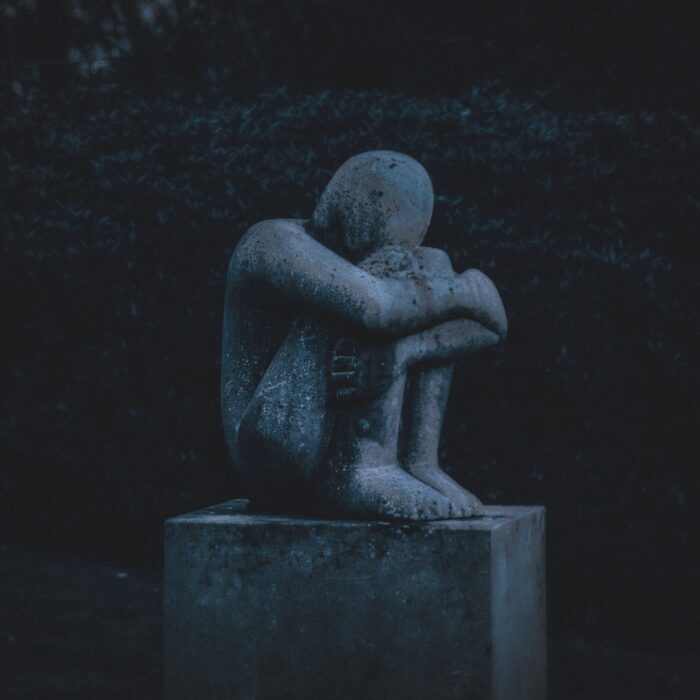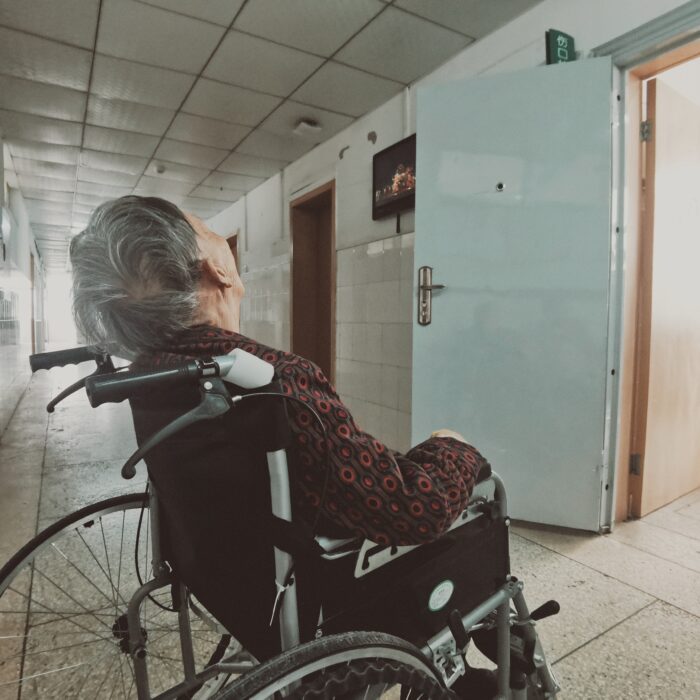You have no items in your cart. Want to get some nice things?
Go shopping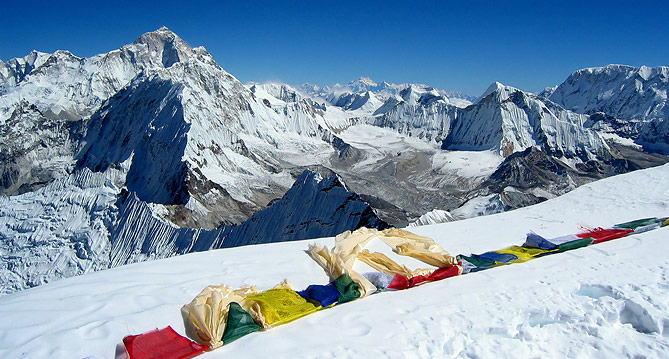
We met in Kathmandu and then again in Pokhara, both of us a little older than the rest of the travellers passing through and climbing things. I believed that something physical might help me out of the state I had entered in the last few years. My world had become small and uninhabitable; I traced it back as far as I could, and ended up in Nepal. And so I took a leave of absence from my safe desk job, threw out the scripts for Prozac that well-meaning friends had pushed on me, and stopped self-medicating. I hoped that all the drugs and alcohol had not permanently killed any brain cells I might still want in play.
It was probably not the best environment for avoiding drugs, you could smell the hash waft through the market streets in Kathmandu. But I was on another wavelength. I was too old to be offered the stuff by the Nepali kids in the street who were selling, or the 20-something kids all done up in their faux-Nepali outfits which would fall apart by the end of their holiday.
The mountain climber stood out, too. I imagine he was 40-something like me, pushing fifty, perhaps. He was in better shape than most of the kids around him but his skin, like mine, could not hide his age and unlike me he did not dye his greying hair. Walking the same narrow streets, it seemed inevitable that we would meet.
The last time I’d come to Kathmandu was more than 20 years ago. I fell in love there for the first and last time ever, I’d loved and fallen since, but not at the same time. I was in the earliest part of my twenties, that time when everything seems possible, and is. It was a fact I had been fully aware of, and never more than in Nepal, where the colours were brighter, the chaos more life-affirming. Even without the drugs, and before the sex and the love spun out of control and the prism through which I saw everything was altered.
Twenty years later, and I was back in those streets again, older, more anxious, less beautiful than I had been. Back in one of those cafes with the misspelt omelets and rice and lentils on the side. Rabid looking dogs waited outside the door for me to finish, and I kept looking up from my table to see if they’d moved on.
“They look pretty nasty, don’t they?” said the mountain climber from the next table. “How about we get past them together?” he suggested, and I stood up to leave with him, but once we got out the door the dogs wouldn’t let us alone. Maybe they smelt the fear. Or else something was conspiring to keep us walking together.
His name was John. He was the kind of guy who was always going to climb that mountain. That’s what I was thinking while we walked, even before I got to see the mountain boots and all that thermal underwear. He had a long, sure stride and a certainty about the way he moved.
“Tell me something interesting,” he said, “you’ll stop giving off that scared smell if you’re occupied,” and so all the way down the narrow streets from the bazaar I kept on talking, barely noticing the changing scene around me.
“I was in my twenties. We met on a Thamel street,” I told him. “Close to where you and I were eating our breakfast today. And that was where we parted. I never saw Anton again,” I said. He stopped walking for a moment and looked at me, like he wanted more. “The details of the story aren’t important,” I said.
“Of course they are,” said John, but I didn’t elaborate.
“So what made you come back here?” he asked me.
“I have no idea. It was, you know, a chain of coincidences.”
“Really?” he said. “I don’t believe that.”
When I finally looked up, the dogs had been replaced by straggly cats and young men selling an impossible number of trinkets. A wide staircase led to a giant statue that I thought was a Buddha but turned out to be a Hindu goddess with multiple hands and breasts. “That would be cool for the male gods,” I said. There were garlands and music and colourful saris and the scent of jasmine and patchouli. At some point John took my hand while we climbed the stairs, but I barely noticed until we were simply walking hand in hand. It felt natural, and I made no move to take my hand away.
When we got closer to the goddess, he bought some incense sticks and lit them. “Incense gives me asthma,” I said, the sound of accusation creeping into my voice before I checked myself, and we set off back down the rock-hewn stairs.
“How long has this been here, do you know?” I asked him as we walked. John was steady and he looked so relaxed and in control, like he’d worked out some secret about life that I just had an inkling of. A sense of purpose, perhaps, even if it was just climbing things. But he shrugged at my question, “probably a few hundred years,” he said, although to me the stairs felt ancient, like they’d always been here, trodden on by travellers and pilgrims.
*
I am walking with Anton through the main street of Thamel and we stop to buy an amulet, it’s a miniature of blue-green buddhas circling the world. The shopkeeper is a tiny woman wearing burgundy and barely old enough to be the mother of the child strapped on her back, asleep against her skin. She has eyelashes so long that I move close to check if they are real.
She puts the amulet onto a chain and Anton secures it at the nape of my neck, brushing my skin as he sweeps my hair aside. My hair was long then. Later I would cut it short, like a piece of cloth that’s torn in mourning.
*
I met John again a week later in a guesthouse in Pokhara, one where people our age can still feel comfortable. A place with proper mattresses and pillows, no cockroaches or bed bugs. The rooms were plain – stone floors, simple wooden furniture, a window out to the lake, where people were gliding by on painted row boats. It felt right that he was there, like we had been half way through a conversation and now we could keep going. Something was pulling me towards him, but it didn’t exactly feel like attraction, not the kind that I was used to. This was more gentle than that. It seemed to grow in increments.
That morning, we hired a boat that had recently been slapped with a coat of fresh blue paint and two eyes. Everywhere you go here there are these Buddha eyes looking down at you from stupas and temples and placards above dirty roads.
“They’re supposed to remind you of the path to enlightenment,” John told me.
John had strong rowing arms. We took the boat into the centre of the lake where it’s flat, reflecting bits of sky.
“All I remember about Pokhara was having sex on one of these boats,” I told him.
“That must have been difficult,” he said.
“No,” I said. “It was the easiest thing I’ve ever done.”
John took this as the sign that I intended, leaned across and kissed me, rocking the boat so hard that we had to stop.
“I don’t get how you did it,” he said.
I remembered it perfectly, exactly, it was 20 years later and I felt like I was back on that boat, nobody around for miles. Blessed and in the very centre of the world.
John didn’t try to kiss me again. “You can’t compete with memories,” he said. “Maybe we’ll find somewhere that will remind you of me.”
I wasn’t sure how to answer this. “A botched kiss on a row boat doesn’t mean anything,” I said.
And that’s when John suggested that we go climbing.
I hadn’t planned on climbing when I came to Nepal, I hadn’t planned anything, much, except to go back to the places I had been. I might have been the only tourist here who wanted mountains as a backdrop, immense and snowy: I didn’t want to see them up close.
Like everything else in my life, I wanted to keep the mountains at a safe distance where they could look good and not make me uncomfortable.
“I really don’t like the idea of climbing,” I confessed.
“We’ll do a really short, easy trek,” John promised. “A couple of nights, Sherpas to carry our stuff.”
“I don’t want some strange man coming with us,” I said.
“I’m not that strange.”
“Can’t we just take a few things on our backs and sleep in guest houses and buy our meals?” I said. “What I really want is a light stroll in the valley with a few small inclines.”
“Sure,” he said. “I’ll do the real mountains later.”
I liked it how he didn’t try to talk me into anything. If he had, I probably never would have gone with him.
The main street of Pokhara was chaotic, packed with signs in every language, offering everything. The government permit office was doing the best business, overflowing with tourists on their way to the Annapurna circuit, and we lined up with them inside the dingy room. You couldn’t even go for a leisurely walk like the one John had promised me without paying for it. Outside, the road was dusty and the sun glinted off the lake’s surface. The wind played with the coloured rowboats, their wooden hulls clunking together like chimes. The music of motor rickshaws was mixed with the sizzle of cooking and the wind rustling up a storm cloud.
The trail started easy. A short incline led to a broad, grassy plain. Clay terraces swept up gentle hills with tall craggy peaks all around them, topped with snow. Pencil-thin paths took us through rice paddies. The valleys were vast and shallow and every kind of green. When we took a break from talking there were birds to keep our minds clear, and the rush of river flowing over pebbles and the changing view.
John was nothing like Anton. I just happened to find him in the same place. Anton had been a player. Women could not resist the handsome face with its square jaw and dark eyes that locked in on yours and didn’t wander, would not let go at least for a time. In that moment he was yours, but it was a lending library. You had him while you had him, that was all, like hot soup on a freezing afternoon. Or the sun rising over the Himalayas.
*
I’m taking a photo of Anton in the Katmandu valley, he’s tiny on the cusp of a rolling hill, holding my jacket in his hand and the wind is blowing him. He’s looking straight at me, straight into me holding the camera. It’s towards the end of the trail and he’s holding the down coat that I asked him to carry a few hours back. I was tired and I asked him to take it and he did, of course. But there is something in the way he’s holding it, a moment of hesitation in his face as if to ask: why me? I’m already carrying my own stuff, why am I also carrying yours?
*
John was a strong guy with no spare fat and easy strides that owned the ground he walked on. For hours we moved wordlessly. He took my hand when there was a rock to climb or a pebbled stream that was slippery. Sometimes he put his steady hand in the small of my back as we walked uphill. A small smile fixed on his lips, opening into happiness each time we reached a hilltop and saw the valley stretched around us.
“There’s a village over there,” he pointed, the next time we discovered the way ahead. It opened up so suddenly my breath was almost stopped by the newness. Across the shallow river bed and across a hill latticed with terraces, sat a small cluster of clay houses with thatching for rooftops. “Let’s go there,” we said together.
There’s an art to climbing terraces, clay-carved into hillsides and densely planted so that every drop of land and water’s utilized. Along the edges between plots were thin embankments wide enough for walking single file. We wound our way up to the village, built from the same clay as the mountain, an orangey brown that made the sky look bluer and the scattered clouds more white.
John had planned to climb Everest on this trip, he told me. But the season turned nasty and people started dying on the way back down. It was crowded on the mountains, so the climb took longer than planned. Sometimes they’d run out of oxygen or just get tired or a sudden blizzard would strand them.
“Stuff hardly ever goes as planned,” he said.
“Sometimes it does,” I said. “If your plans are very small.”
We were almost at the village, the terraces stretched back behind us. I couldn’t believe how far we’d come. I felt safe, even though I had no idea what was ahead of me. “I like being here with you,” I told John, and in that moment, it was true. I’d even stopped thinking about whether we would hook up, if it would be weird or detached or make me cry. Or all of the above.
We stood at the foot of the hill looking up. This wasn’t exactly a village; no streets or shops were visible, just a couple of dozen houses spread out unevenly from the hilltop down, with goats eating the tall grass to pave footpaths. A boy ran down from the house at the summit, he must have been 12 or 13, the bar-mitzvah moustache giving his age away.
“Brad Pitt!” he said to John when he finally stopped. “You are Brad Pitt coming from Tibet?”
John laughed. He may have even blushed a little.
“I knew you reminded me of someone,” I said.
“My name is John,” he told the boy. “And this is…”
“Angelina?” the boy asked, hopefully.
“Sure,” I said. “And what is your name?”
“George. Like George Cluny,” he said, making his chest look bigger and pushing out his chin. “You come to my house for dinner, Johnny Depp and Angelina, OK?”
We exchanged a quick look and John said “Thank you, George.”
“My house is on the top of the village because my father is the important man,” he said, running up ahead of us, then running back to be sure we were following.
George stopped outside a double-story mud house at the top of the hill – the highest in the village, he reminded us. He ran in to announce us, returning to the courtyard where we removed our shoes before going in. For a mud hut, this place was pretty sophisticated, and quite large. There was a wood stove in the corner where his mother was preparing a meal, watched over by a small deity strewn with garlands. A staircase led to a second floor. Carpets covered parts of the mud flooring and kids ran in and out every second, stopping briefly to bow slightly and say Namaste.
“We should tell them that we’re married,” John said to me. “It’ll make things easier.”
“Ok,” I said. I had never been married, and never wanted to be, but I was willing to go along with the idea.
George’s father came down the stairs, a handsome man about our age with almost perfect English. Turns out he was a Gurkha, one of the privileged few to serve in the British battalion. He’d been in Afghanistan and Iraq.
“I am also training to be chosen,” said George. “Every day I run up the mountain with rocks in my pack. That is the test they give us.” I understood why these guys wanted to climb up mountains, but I still hadn’t figured out John.
We ate with George’s family on cushions on the floor. After the meal his mother threw water on the ground to wash it down, adding a new layer of clay when she finished, so that the house was always a work in progress. His father took us upstairs to show us photographs of his own father and grandfather in Gurkha uniform. Across the room from the photos was a small shrine with a lion-faced deity, pulling open his chest. Inside his heart were tiny meditating figures.
“This is my god,” he said. “He shows us where his strength is coming from. Who is your god?” I told him that I wasn’t allowed to draw my god, that he had lots of rules but I mostly ignored them. John said he had three gods – Mary, Jesus and a guy with a beard – but he didn’t pray to them. “I have heard of these gods, of course,” said George’s father, “but everyone needs their own, special god to love.” He seemed a little saddened.
“What do you think he meant about the gods?” I asked John once we were alone.
“I don’t know. Maybe you need a personal vision of God to have a real connection. It’s like feeling love for someone in particular. Otherwise, how can you know what love is?”
I didn’t know what love was anymore. I couldn’t even remember having good sex.
*
Anton and I keep walking, but we must be on the wrong trail, there’s no village on the hill where the map says it will be. We pitch a tent next to a flowing stream and make a fire to heat up water for drinking and two-minute noodles.
We don’t have sex. It’s too cold to get out of our separate sleeping bags. At some point in the night I reach out to him, the rhythm of his breathing makes me think that he is still awake, and maybe he is. Maybe it’s in his sleep that his hand is pushing mine away. I leave it between the sleeping bags to get cold from the night air, like an object that’s detached from me.
*
That night, John and I slept side by side on the floor next to the kitchen when everybody went upstairs. George’s father unfolded fluffy bedding for us, and said something that sounded like a prayer.
I felt a shiver go through me. “Are you cold or scared?” John asked.
I was cold and I was scared and I was haunted. If I managed to hold back then I would be alright. If I kept this all contained, then nothing bad would happen.
I turned my back to John under the covers, and he leant forward to kiss the nape of my neck. “I like your hair short,” he said, as if he’d known me some other way.
He moved closer and put an arm around me. “Can you sleep like this?” he asked me.
“Maybe. I don’t know. We’ll see.”
I woke up in the morning very early, with stars still in the sky. John was sleeping on his back, his arms stretched out at each side, the covers thrown off his chest. I leaned across to kiss his shoulder. His skin tasted like melted snow.
In the morning, we set out on our journey again, taking a group photo with the family outside their house and promising to send it. George’s father wrote down his name and the name of the village and said that the mail would get there. We all clasped our hands and bowed a little. I could feel the ice in the breeze, carried from the mountains and laced with dew. The earth smelled of rain even though none had fallen, musky and reawakened. Birds called out to us from thick bushes that lined the pathway, calling, chirping, singing out to each other and I wondered if there was any kind of understanding between species. The loud, constant ho-ho, ho the smaller, faster talkers, the one that knocks on wood like Morse code, the high-pitched screamers getting in their say. They must hear each other, they must feel the ice and dew in the wind and see the butterflies with tiger eyes painted on their wings. And us, loping along their carriage-way. Crushing the grass.
“When I’m climbing, everything is quiet,” John was telling me while we walked. “The past stops intruding, the future isn’t relevant. There’s just me and the challenge of how to scale this and then I stop for a break and everything is beautiful, the tea I’ve brought is hot and fragrant and my mind becomes clean and clear like a mirror.
“When I’m strolling, I can think. I miss the feel of the wind and the sound of it rustling. Nature is pretty but it fades into the background. The physical properties of a rock outcrop are not connected to me, intimately like another person or a part of my own body, until I need to understand them to survive. Once they become necessary, I can see them. Instead of being outside of the world I am in it. It’s the only time I ever feel like that.”
“So you’ve never been in love?” I said.
I loved Anton in a way that you can only love when you’re young. That’s how I looked at it. Small disappointments get shunted off and passion counts for everything. Later, when the small stuff starts to add up to something you can’t live with, you leave without even knowing why. That comes later, after the heart wrenching. Years of bottled sadness over somebody who wasn’t worth it, years of half-lived life in safety until it happens again only this time it’s half-hearted. You’re disappointed in advance, as deep as you let the passion go you never let it take you over. It’s like oxygen that doesn’t get into the blood system completely, like altitude sickness, the kind that forces you to climb back down.
“You know how to avoid altitude sickness,” John told me. “Every so often, you stop and rest. When atmospheric pressure drops, the oxygen can’t bind as well to your red cells. When you give yourself the chance to adapt, your body simply makes more hemoglobin: each cell still carries less oxygen, but there are more of them.”
“That’s pretty cool.”
“If you let yourself, your body naturally changes to fit the world. You get sick when you insist on keeping everything inside you the same.”
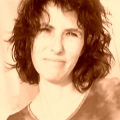
About Ruth Lacey
Ruth Lacey is a writer and visual artist. She grew up in Sydney, holds an Arts-Law degree from the University of Melbourne, and an MPhil in Creative Writing from the University of South Wales (formerly Glamorgan). Her short fiction has appeared in Storgy Magazine, Fish Anthology, Best of Carve Anthology, Meniscus, Overland, Verbsap, and other journals. Her work has also been shortlisted for the 2020 Bridport Prize, 2017 Commonwealth Short Story Prize, and Cincinnati Review Schiff Prize.


